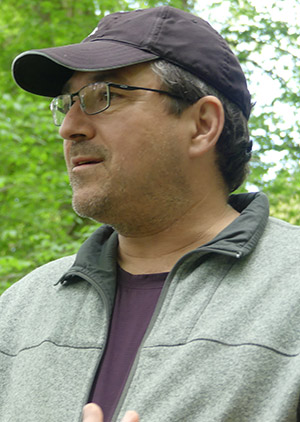CANCELLED: Christian Messier, "Using Forestry to Restore the World's Forests: A New Approach"
-
Room ES 4001, 33 Willcocks Street
Note: This event has been cancelled until further notice.
Human impacts on Earth’s ecosystems have greatly intensified in the past few decades. This is reflected in unexpected disturbance events, as well as new and increasing socioeconomic demands, all of which are affecting the resilience of forest ecosystems worldwide and the provision of important ecosystem services. This Anthropocene era is forcing us to reconsider past and current forest management and silvicultural practices, and to search for new ones that are more flexible and better at dealing with the increasing uncertainty brought about by these accelerating and cumulative global changes. This lecture will briefly review the focus and limitations of past and current forest management and silvicultural practices, mainly as developed in Europe and North America. Christian will then discuss some recent promising concepts, such as managing forests as complex adaptive systems, and approaches based on resilience, functional diversity, assisted migration and multi-species plantations. He will propose a novel approach to integrating the functionality of species-traits into a functional complex network approach as a flexible and multi-scale way to manage forests for the Anthropocene. This approach takes into consideration the high level of uncertainty associated with future environmental and societal changes. It relies on the quantification and dynamic monitoring of functional diversity and complex network indices to manage forests as a functional complex network. Using this novel approach, the most efficient forest management and silvicultural practices can be determined, as well as where, at what scale, and at what intensity landscape-scale resistance, resilience, and adaptive capacity of forests to global changes can be improved.

Christian Messier is professor of forest ecology and urban forestry and scientific director at ISFORT at the University of Quebec (UQO and UQAM). His research interests are wide, ranging from the basic understanding of tree growth and death, forest community, and ecosystem functioning to decision-making tools to better manage and conserve natural and urban forests. In 2005, he started an ambitious research project to manage a large forest unit (850,000 ha) based on the principle of functional zoning (TRIAD). He has established a worldwide network of diversity experimental tree plantation (IDENT) to study the relationships between tree diversity and ecosystem functioning with sites in Canada, the USA, Germany, and Italy. He has published more than 300 referee papers, reports, book chapters, and books. He has held an industrial-NSERC research chair on tree growth since 2010 and a Canada Research Chair on the resilience of managed forests to global change since 2017.

